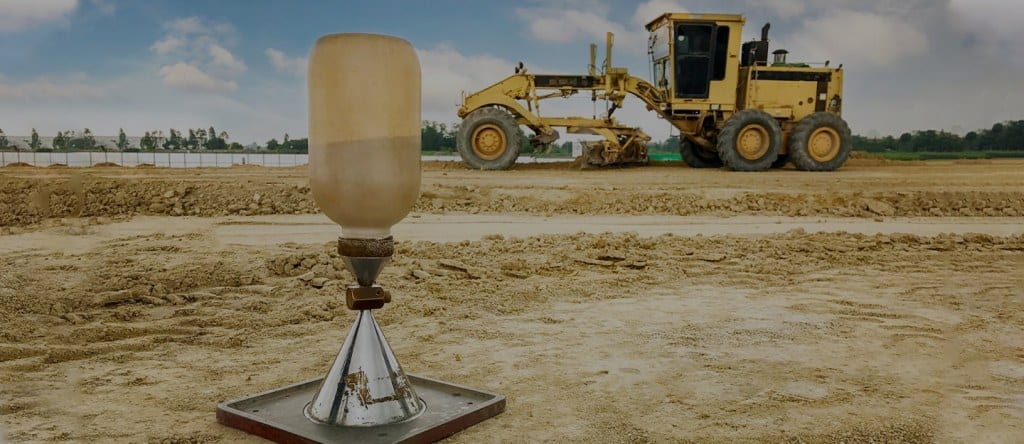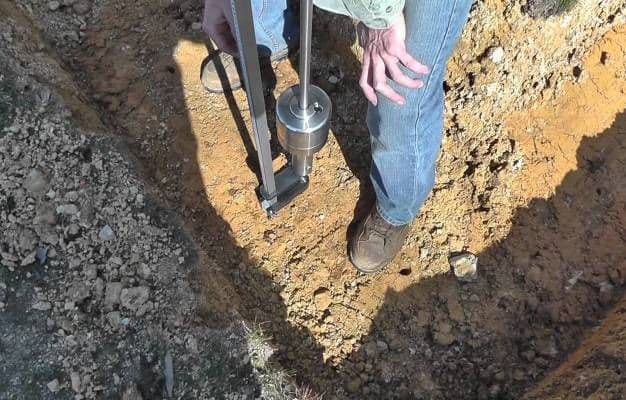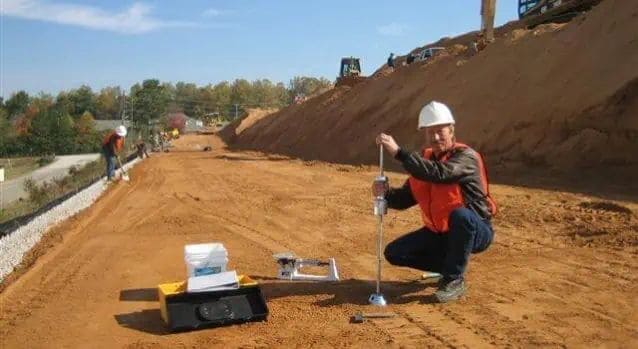Fort Worth, a vibrant city undergoing constant development, relies on sturdy foundations for its diverse structures. Ensuring the stability and safety of these structures hinges on a crucial step: soil testing. However, it’s important to understand that soil testing in Fort Worth primarily caters to construction and geotechnical purposes and does not include garden soil testing and analysis.
This article delves into the intricacies of soil testing in Fort Worth for construction projects, clarifying its purpose, process, and benefits.

What is Soil Testing?
Soil testing is a comprehensive process that analyzes the physical and chemical properties of soil at a specific location. It involves collecting soil samples from different depths and sending them to a qualified laboratory for detailed analysis.
Why is Soil Testing Essential for Construction in Fort Worth?
Fort Worth’s diverse soil composition, ranging from clay to sandy loam, necessitates thorough soil testing before commencing any construction project. This testing offers several critical benefits:
- Ensuring Foundation Stability: Understanding soil properties like bearing capacity, shear strength, and settlement potential is crucial for designing safe and stable foundations.
- Identifying Potential Geotechnical Hazards: Soil testing helps identify potential hazards like expansive clays, liquefaction-prone soils, or underground water tables. Addressing these issues proactively prevents costly delays and ensures project safety.
- Optimizing Construction Design and Materials: By understanding the soil’s characteristics, engineers can optimize foundation design, select appropriate construction materials, and anticipate potential construction challenges.
- Cost Savings: Timely identification of geotechnical issues can prevent costly repairs and reconstruction work down the line.

The Soil Testing Process in Fort Worth:
The soil testing process in Fort Worth typically involves the following steps:
- Project Planning and Site Assessment: Engineers will assess the project site and determine the scope of testing required based on the planned structure’s size, complexity, and potential risks.
- Soil Sampling: A qualified geotechnical engineer or contractor will use specialized equipment to collect soil samples from various depths and locations at the site.
- Laboratory Testing: The collected soil samples are sent to a certified laboratory for analysis. Tests may include:
- Grain size analysis: Determining the distribution of soil particles (sand, silt, and clay)
- Atterberg limits: Assessing soil plasticity and potential shrinkage or swelling
- Compaction testing: Measuring the soil’s density and load-bearing capacity
- Chemical analysis: Evaluating relevant chemical properties like pH and salinity
- Data Analysis and Report Generation: The laboratory will analyze the test results and prepare a report summarizing the soil properties and recommendations for foundation design and construction practices.
Who Performs Soil Testing in Fort Worth?
Qualified geotechnical engineers and licensed professional engineers registered in the state of Texas are authorized to conduct soil testing and interpret the results. Additionally, reputable geotechnical engineering firms in Fort Worth often offer comprehensive soil testing services.
“Ensure your construction project starts on solid ground. Contact our expert soil testing team in Fort Worth today for reliable and professional service!”

Conclusion
Soil testing serves as a critical pillar for safe and successful construction projects in Fort Worth. By understanding the unique composition of the city’s soil and its impact on construction, engineers and developers can ensure the stability, longevity, and cost-effectiveness of their projects.
It’s crucial to remember that soil testing in Fort Worth, as described in this article, caters specifically to construction and engineering needs and doesn’t encompass garden soil testing and analysis. For information on garden soil testing, please consult your local gardening resources or extension service.Fort Worth soil testing is essential for ensuring the stability and safety of construction projects. Accurate soil analysis helps in building strong foundations.soil sample testing Fort Worth provides essential insights into the composition and quality of local soil for construction projects.Soil test Fort Worth is essential for ensuring the stability and safety of construction projects in the area.Soil testing lab Fort Worth provides crucial insights into soil composition and quality, ensuring the success and safety of construction projects in the area.
Soil testing is a comprehensive process that analyzes the physical and chemical properties of soil at a specific location. It involves collecting soil samples from different depths and sending them to a qualified laboratory for detailed analysis.
Fort Worth’s diverse soil composition, ranging from clay to sandy loam, necessitates thorough soil testing before commencing any construction project. This testing offers several critical benefits.
How useful was this post?
Click on a star to rate it!
Average rating 4.2 / 5. Vote count: 51
No votes so far! Be the first to rate this post.

